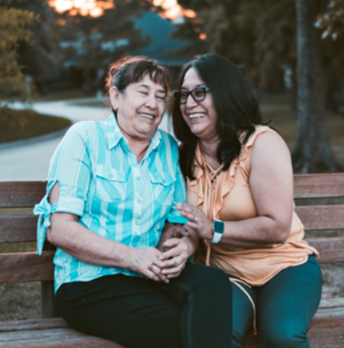The Journey of Caregiving
There is no question that caregiving is a big job and can be overwhelming at times.
Having access to support and resources along the way, as well as the assistance of family, friends, neighbors, and community can ease the sense of burden and make caregiving a much more positive experience.
There is no question that caregiving is a big job and can be overwhelming at times.
Having access to support and resources along the way, as well as the assistance of family, friends, neighbors, and community can ease the sense of burden and make caregiving a much more positive experience.
|
What to Expect as a Caregiver
Each person’s experience with Alzheimer’s Disease and other dementias is different. People with Alzheimer’s Disease experience changes on an ongoing basis. One day may not be the same as the next and sometimes there is a period where things stay the same for a while. When this happens, it is easy to believe that things are going to stabilize, and then the next day it changes again. Those who care for a person with Alzheimer’s Disease speak to the importance of living “in the moment”. Those moments of sharing stories from the past, their laughter, their smiles and contentment and mutual love can bring them joy. Taking the time to learn more about a person interests, hobbies, skills, and enjoyable times can create opportunities for meaningful communication. |
|
Early Stages – Warning Signs & When it is Time to Get Help
In the early stages of Alzheimer’s Disease, the person usually knows something is not right. When they feel this, they can react with anger, panic, or sadness, but in most cases the real overall feeling is fear and uncertainty. Some signs that family, friends, and neighbors may see when a person is experiencing the onset Alzheimer’s Disease or other dementias include:
|
|
Caregiver Support and Resources
Role and relationship changes take place over time - sometimes without even being aware. Family members may find themselves providing more support and assistance than previously as they transition from Spouse or Child to Caregiver. A caregiver’s role often becomes consuming and any respite and/or assistance is generally appreciated. In some cases, a caregiver becomes so overwhelmed that he or she may not be able to express exactly what kind of help they need. Some helpful approaches to supporting a caregiver include:
|



